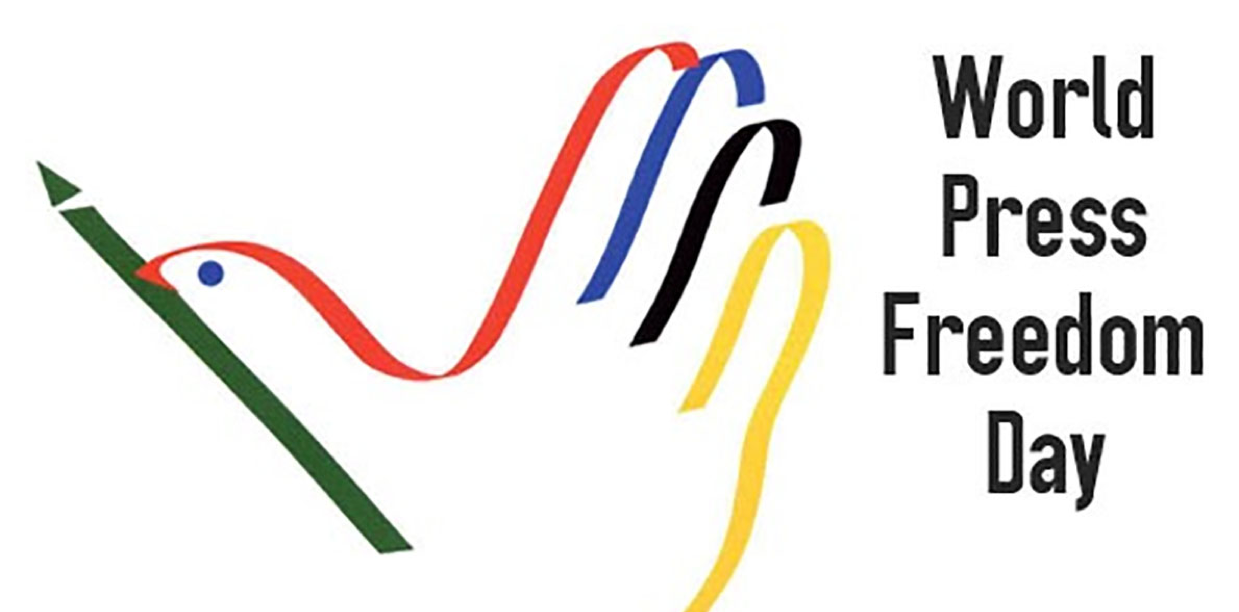Americans for Democracy & Human Rights in Bahrain (ADHRB) joins the United Nations Educational, Scientific and Cultural Organisation (UNESCO) in commemorating World Press Freedom Day. On World Press Freedom Day’s 26th anniversary, ADHRB remains deeply concerned on the status of press freedom in Bahrain, Saudi Arabia, and other Gulf Cooperation Council (GCC) states. These countries are notorious for arbitrarily detaining journalists and dissolving independent media outlets. According to the Reporters Sans Frontieres (RSF) 2019 World Press Freedom Index, Bahrain, Saudi Arabia, the United Arab Emirates (UAE), Qatar, Kuwait, and Oman all received low rankings in terms of freedom of speech and press, with Bahrain at 167 and Saudi Arabia at 172 out of 180 countries. Their rankings are a decrease from last year, demonstrating that the free press climate continues to worsen in the GCC states.
In the eight years following the 2011 peaceful pro-democracy protests, the Bahraini government has cracked down on press freedom. The kingdom has effectively repressed civil society and created an authoritarian environment by using broad anti-terror and cybercrime laws to criminalize any dissent or criticism of the government or its policies. On 4 June 2017, Bahrain’s Ministry of Information Affairs (MIA) suspended Al-Wasat – Bahrain’s only independent newspaper – after continuously targeting and banning it several times in the past. Additionally, Bahrain often bars foreign journalists from entering the country, as it seeks to prevent its citizens from engaging in free press and independent reporting.
The Bahraini government’s efforts to suppress free press goes beyond controlling the media and blocking media outlets, with authorities targeting, harassing, torturing, and imprisoning journalists. RSF has documented at least 15 journalists currently serving prison time in Bahrain for their reporting. Among them is photojournalist Hasan Mohamed Qambar. Due to his reporting on the 2011 protests, Hasan was arrested. After his release, he continued reporting, sustaining serious injuries from security forces in the course of his work. He was arrested for the second time on 12 June 2018 in relation to his photojournalism work.
The Bahraini government’s attempt to suppress freedom of the press is part of a broad campaign to silence all dissent. Among those who has been arrested for dissent is Nabeel Rajab, a prominent Bahraini human rights defender. Nabeel was given a five year sentence in 2018 for criticizing the Bahraini government and expressing concerns on Twitter over torture allegations in the kingdom’s prisons. While in detention, Nabeel’s health is sharply deteriorating due to his inhumane living conditions and the prolonged stints in solitary confinement. Hasan and Nabeel’s arrests, along with those of other journalists and free expression advocates, are part of a broad attempt by the Bahraini government to quell all free press and cover up violations carried out by authorities.
Saudi Arabia is no stranger to the silencing of journalists and non-state sponsored media outlets, especially since Mohammed bin Salman’s rise to power as Crown Prince. RSF reported that, as of 2019, there are about 37 imprisoned journalists in the kingdom. The brutal murder of journalist Jamal Khashoggi garnered international attention, shining a light on the punishment for free speech and press in the kingdom when it involves criticism of the ruling family. Khashoggi, a Saudi Arabian columnist for the Washington Post, was killed and dismembered in the Saudi consulate in Istanbul, Turkey on 2 October 2018. His murder was ordered and carried out by Saudi officials as a reprisal for his critical reporting on the policies of the Saudi government.
In addition to Khashoggi, there are 36 other journalists currently in prison. Saleh al-Shehi, a columnist for Saudi newspaper Al-Watan, was arrested on 3 January 2018 by Saudi security forces. He regularly reported on the Saudi government’s policies and treatment of expat workers. More recently, Saudi Arabian authorities arrested four journalists, Thumar al-Marzouqi, Bader al-Ibrahim, Mohammed al-Sadiq, and Abdulla al-Duhailan on 4 April 2019 as part of a mass arrest of 12 activists. Al-Sadiq, al-Ibrahim, and al-Marzouqi all wrote for Al-Arabi al-Jadeed, a Qatari media outlet, and Al-Duhailan wrote for a London-based newspaper Al-Hayat. The numerous arrests of reporters and activists that took place after Khashoggi’s murder prove that the Saudi government is not concerned with the rights of journalists or freedom of the press.
The remaining GCC states, Kuwait, Qatar, Oman, and the UAE, also make concerted efforts to restrict press freedom. In its 2019 World Press Freedom Index, RSF ranked Kuwait 108 out of 180, Qatar 128, and Oman 132. The UAE, ranked 133, in particular has little to no tolerance for independent reporting, free speech, and the work of independent journalists. The government’s Cybercrime Law allows for online journalists to be tried and punished for their expression on social media platforms or websites. Emirati authorities engage in surveillance and censoring, especially monitoring activists and political dissidents like Ahmed Mansoor. Mansoor was arrested in 2017 and sentenced to 10 years in prison for insulting the “status and prestige of the UAE and its symbols” and promoting “hatred and sectarianism” through his tweets calling on the Emirati government to release two other arbitrarily detained human rights defenders. Qatari websites such as Peninsula Qatar and Al-Jazeera Live were both blocked in the UAE in 2017, demonstrating that the region is hostile to free and independent reporting.
On this day, when celebrating press freedom around the world, the international community should put increased pressure on GCC states to release all arbitrarily imprisoned journalists and investigate all instances of abuse. ADHRB calls on Bahrain, Saudi Arabia, the UAE, Qatar, Kuwait, and Oman to allow for an environment of free press and welcome both foreign and citizen-journalists.





